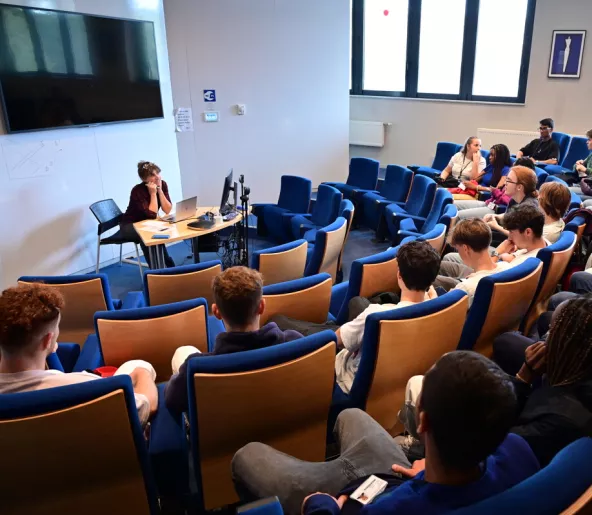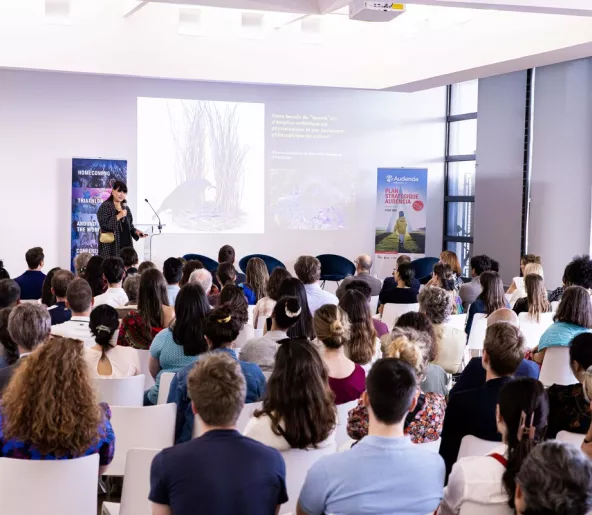Our expertise is based on our own research and professional experience. We develop our teaching in close collaboration with our ecosystem, involving practitioners and managers in the teaching process. This ensures that our courses are relevant to today's organizations. These connections to the local ecosystem help us develop and deliver courses inspired by the latest practices and knowledge for the next generation of entrepreneurs, managers and leaders. Finally, we focus on experiential learning. We engage learners in the creation of new knowledge. Whenever possible, our classes allow students to become participants in the local ecosystem for the duration of the class, giving each student the opportunity to build strong relationships with relevant stakeholders.
Our department is home to several degrees and specializations at the undergraduate and graduate levels, including entrepreneurship, marketing, design and creation, and business development.


